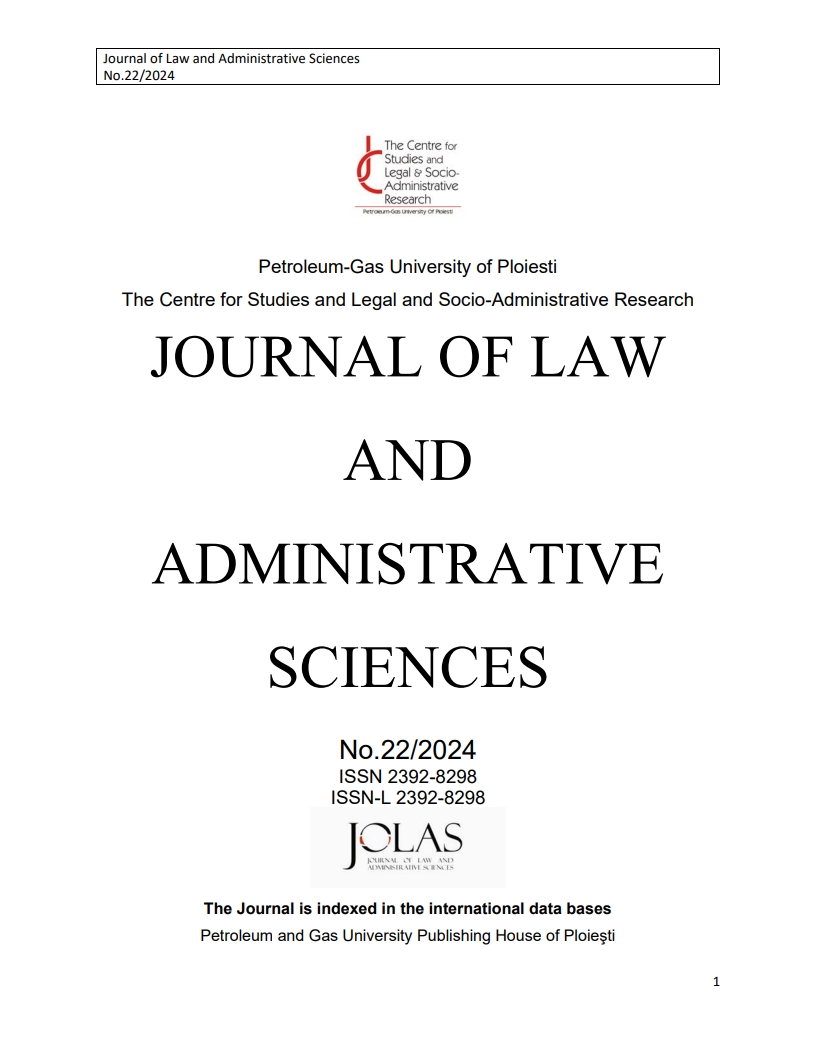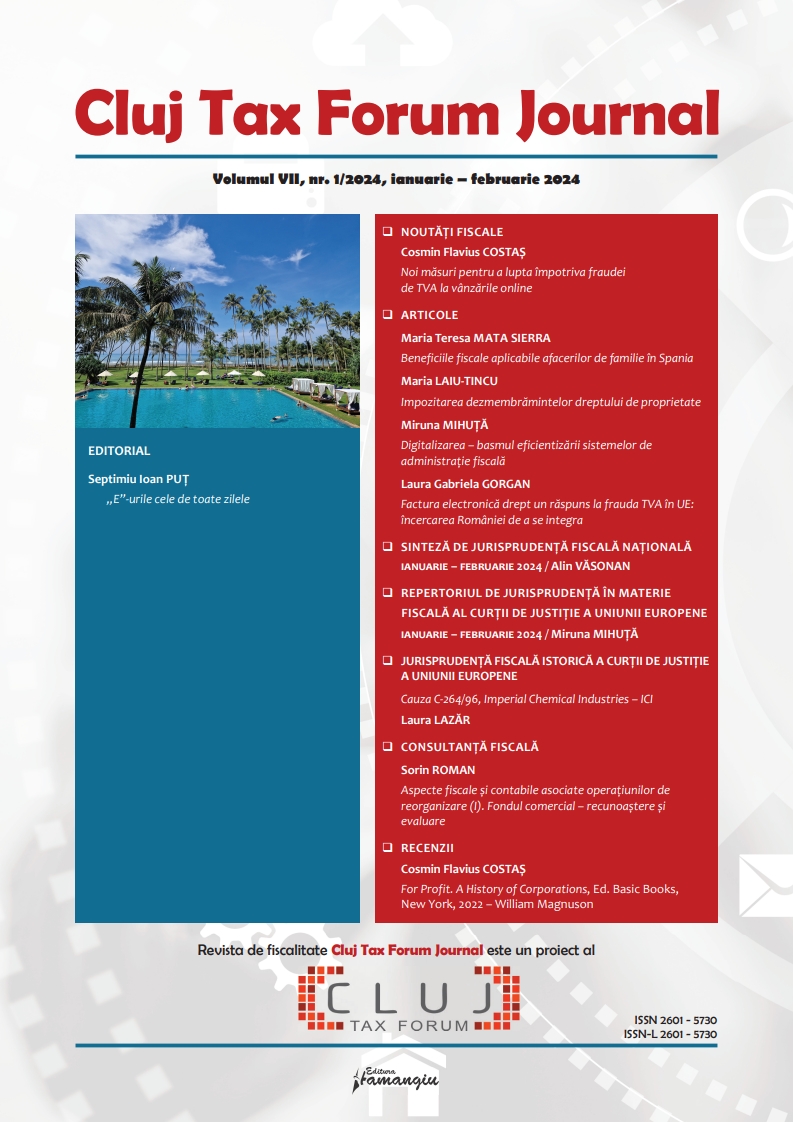Author(s): Diana Maria Ilie,Ramona-Florina Duminică / Language(s): English
Issue: 20/2023
A “journey into the realm of fundamental human rights and freedoms” awakens in the soul and inner experiences of any researcher a special sensitivity, a depth in analysis and creation, but also a trace of vulnerability, especially in a global socio-economic context so fragile, in which people’s suffering reaches levels of horror difficult to represent. These successive and partially interconnected crises, generated by the pandemics and the war, transposed over the reintensification of geopolitical competition for regional or global supremacy, or over the transformative technology revolution of digitization, have revealed the “strength” and “fragility” of right as two mirrors of the same reality, but also the “critical” urgency to reevaluate the issue of human rights and respect for human values and the human being. There is, however, “a force at the heart of fragility”, which takes the form of solidarity, and which we have experienced especially during the humanitarian crisis. The general context of the humanitarian crisis “unleashed all-out” in Ukraine, more recently in Israel and Gaza, has put us in front of a paradox of our security based on the expansion and hard core of international human rights regulations, the undeniable progress reached in regulating human actions and in protecting life on earth “falling abruptly into helplessness”. The impact of these realities awakens a profound awareness and reflection on the intangibility of fundamental rights and freedoms. Through our research, we aim, on the one hand, to capture this critical point of the conscience of the human being reflected in the freedom of thought, conscience and religion, freedom often restricted “subtly”, imperceptibly, and on the other hand, to reflect on the principle of the prevalence of the “general interest” to which we relate in identifying the “perimeter” of the sovereignty of each individual, a sovereignty that the “brave voices” in international research and beyond call “soul”. This reflection on the possibility of shaping a right of the soul by extending the interpretation of the sovereignty of an individual to what means feelings, inner feelings or emotions, which are manifested in the conscience and thought of each man, comes to “break down”, in all aspects, the corollary of freedom of thought, conscience and religion, so that this freedom of conscience becomes more than a symbolic value, as it is perceived at present. And no, it is not a philosophical approach, nor a religious one, but it comes from the reality of some studies that demonstrate that thoughts can be read, can be manipulated, memories can be modified, eliminated or even recovered. Thought is certainly connected to the “soul”, to emotions and feelings so personally manifested, and an impermissible alteration of our thoughts and conscience triggers the need for further clarity about the legal content and scope of this freedom. On a closer look at freedom of thought, conscience and religion, we will find that to determine exactly what should be covered by these regulations, it may be more difficult than we thought, being rather obscure, abstract and “cold” regulations. Focusing on the idea that the evolution of mankind was one of awareness and starting from the need for interaction between law, science and spiritual beliefs, we will try to open the “door of coexistence” between disciplines in an inter and transdisciplinary vision, with the aim of “enriching” this matter in interpretation and awakening in human conscience the importance and complexity of approaching freedom of thought, conscience and religion. Keywords: fundamental rights and freedoms, freedom of thought, conscience and religion, Universal Declaration of Human Rights, European Convention on Human Rights, Charter of fundamental rights of the European Union, outlining a right of the soul, legal restrictions on the exercise of rights.
More...




